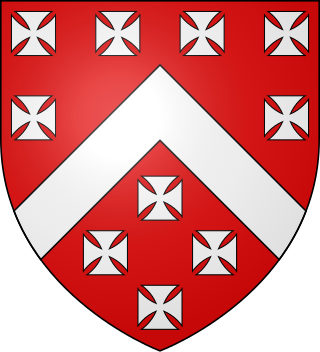Loading AI tools
From Wikipedia, the free encyclopedia
Maurice de Berkeley, 2nd Baron Berkeley (1281 – 31 May 1326), The Magnanimous, feudal baron of Berkeley, of Berkeley Castle in Gloucestershire, England, was a peer. He rebelled against King Edward II and the Despencers. His epithet, and that of each previous and subsequent head of his family, was coined by John Smyth of Nibley (died 1641), steward of the Berkeley estates, the biographer of the family and author of Lives of the Berkeleys.




He was the eldest son and heir of Thomas de Berkeley, 1st Baron Berkeley by his wife Joan de Ferrers (1255–1309), born around the time of the death of his grandfather.[1]
He was involved in the Scottish Wars from about 1295 to 1318.[2] He was appointed governor of Gloucester by Edward II in 1312, shortly after the execution of Piers Gaveston.[3] He was governor of Berwick-on-Tweed from 1314[4] until it fell to the Scots in 1318.[5] He was also appointed Justiciar of South Wales in 1316 and Steward of the Duchy of Aquitaine in 1319[6]
He succeeded his father in 1321, but within a few months joined Thomas, 2nd Earl of Lancaster in his rebellion against the king.[7] He surrendered in February 1322 and the king confiscated his estate.[8] He spent the remainder of his life as a prisoner in Wallingford Castle.[9]
He married:
Berkeley died a prisoner in Wallingford Castle on 31 May 1326 and was initially buried there. The following year his son and heir Thomas, having been released from imprisonment himself, removed his father's body to St Augustine's Abbey, Bristol.[15]
Seamless Wikipedia browsing. On steroids.
Every time you click a link to Wikipedia, Wiktionary or Wikiquote in your browser's search results, it will show the modern Wikiwand interface.
Wikiwand extension is a five stars, simple, with minimum permission required to keep your browsing private, safe and transparent.